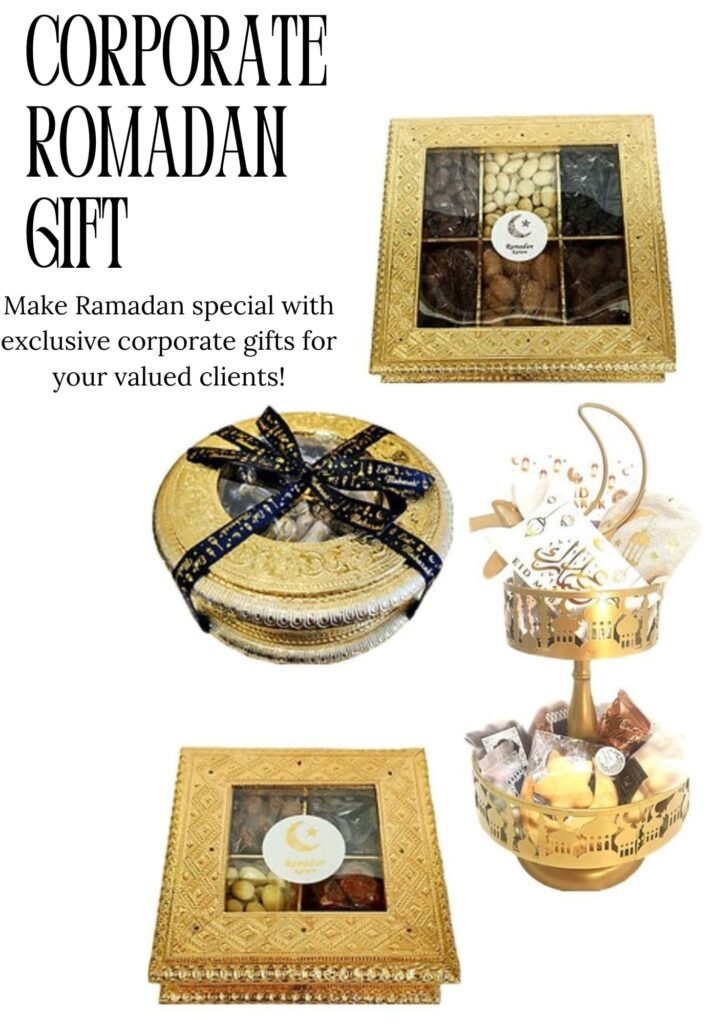Introduction
Ramadan isn’t just a religious occasion in Bangladesh—it’s a period that deeply shapes consumer behavior. People prioritize family, reflection, and charity, leading to a shift in purchasing patterns. High-end gifts, home enhancements for gatherings, and personal indulgences become more significant. This presents a challenge for luxury brands: how can they appeal to consumers who value simplicity while also desiring exclusivity?

Success in Ramadan marketing hinges on cultural sensitivity. While this period provides a lucrative opportunity for engagement, brands must approach it with mindfulness. Flashy advertisements and overt extravagance may clash with Ramadan’s core values of humility and modesty. Instead, those who align with local traditions and tailor their messaging can establish stronger consumer relationships.
Challenges & Opportunities for Luxury Brands
Challenge #1: Cultural Sensitivity – Striking the right balance between luxury and respect for religious sentiment is crucial. Ramadan is a time of reflection, requiring careful messaging.
Opportunity #1: Exclusive Ramadan Offers – Limited-time collections or discounts can create a sense of exclusivity while honoring the occasion.
Challenge #2: Balancing Luxury with Simplicity – Ramadan promotes spiritual growth and modesty. Brands must ensure their campaigns reflect these values rather than excessive opulence.
Opportunity #2: Community Engagement – Initiatives such as charity partnerships and CSR campaigns allow brands to align with the giving spirit of Ramadan while fostering goodwill.
The Right Approach to Connect with Consumers
Luxury brands that succeed during Ramadan focus on building emotional connections rather than just driving sales. By incorporating symbols of togetherness, generosity, and spirituality, campaigns can have a lasting impact. For instance, one successful campaign in Bangladesh involved a luxury brand donating a portion of each sale to local charities, fostering both sales growth and social responsibility.
Cultural Sensitivity in Luxury Marketing
Understanding local culture is non-negotiable for luxury brands marketing during Ramadan. Respecting values such as modesty, family, and spirituality while maintaining a sense of luxury is key. A well-thought-out campaign—such as elegantly designed gift boxes or exclusive offerings tailored to family gatherings—aligns with the occasion more effectively than a traditional sale.
Consumer Behavior Shifts During Ramadan
The Role of Religion and Culture in Spending Habits
Ramadan shapes consumer priorities, emphasizing charity, spiritual reflection, and family connections. These values impact both what and how people buy. Spending on gifts and premium dining increases, aligning with the tradition of sharing meals and giving presents. Luxury brands that offer Ramadan gift packages tap into this demand.
The charitable nature of Ramadan also influences consumer choices. Many people seek to contribute to social causes, prompting brands to integrate CSR initiatives into their campaigns. A portion of sales dedicated to charity resonates with consumers, fostering trust and goodwill.

Moreover, Ramadan encourages intentional purchasing. Consumers prioritize items that enhance their spiritual journey, such as prayer-related products or elegant pieces for family events. It’s less about indulgence and more about meaningful experiences.
Luxury Consumers’ Adaptations During Ramadan
Luxury shoppers in Bangladesh make more thoughtful purchasing decisions during Ramadan. Gifts for family and colleagues, high-end dining experiences, and special home decor see a surge in demand. For instance, premium watches, designer clothing, and jewelry become symbols of appreciation and respect.
Family gatherings, particularly for Iftar and Seheri, further influence spending habits. Consumers invest in fine dining, elegant tableware, and premium home setups to enhance these cherished moments. This shift allows brands to position their products as integral to Ramadan’s celebrations.
Furthermore, luxury consumers actively participate in community events, increasing demand for stylish yet culturally appropriate attire and gifts. Exclusive Ramadan collections and limited-edition offerings cater to this trend, helping brands maximize their seasonal appeal.
Effective Ramadan Marketing Strategies for Luxury Brands
Aligning Campaigns with Cultural and Religious Values
Luxury brands must align their marketing with Ramadan’s core principles: family, charity, spirituality, and community. Extravagant or overly commercial campaigns risk alienating audiences. Instead, focusing on respect and cultural relevance fosters stronger consumer connections.
A proven strategy includes launching Ramadan-themed collections inspired by Islamic art or traditions. Collaborations with local influencers add authenticity, making luxury products more relatable to consumers.
Case Study: A Successful Luxury Watchmaker Campaign
A high-end watch brand in Bangladesh released a Ramadan-inspired collection, emphasizing the significance of time in reflection and family moments. Through influencer partnerships, they showcased how their watches complemented Iftar gatherings, blending sophistication with tradition. This approach led to increased brand engagement and positive sentiment.
Examples of Luxury Brands’ Ramadan Campaigns in Bangladesh
| Brand Name | Campaign Type | Key Strategy | Result |
| Brand A | Ramadan Collection | Designs inspired by Islamic art | Sales increased by 20% |
| Brand B | Influencer Partnership | Promoted luxury gifting for Eid | Boosted brand awareness |
| Brand C | Charitable Initiative | Donations to local charities | Enhanced brand reputation |
Integrating CSR in Ramadan Campaigns
Luxury brands can build emotional connections by incorporating CSR into their Ramadan marketing. Consumers appreciate brands that contribute to the community, whether through donations or social initiatives. Examples include donating a percentage of sales to charitable causes or distributing essential goods to underprivileged families.
One luxury clothing brand successfully implemented a Ramadan campaign by allocating part of its sales to support underprivileged families in Bangladesh. Another example is a high-end beauty brand that collaborated with local charities to provide self-care kits for women in rural areas. These efforts not only strengthened their brand image but also aligned with the core values of Ramadan.
The Role of Influencers and Celebrities
Partnering with local influencers enhances a brand’s reach during Ramadan. These personalities have loyal followings and can create authentic engagement. A lifestyle influencer showcasing a luxury brand’s Ramadan collection, for instance, can add credibility and desirability.
Selecting the right influencers is critical. They must embody Ramadan’s values—family, charity, and spirituality—to resonate with the audience. A well-known fashion figure promoting elegant attire for Iftar celebrations is more effective than a generic product placement.
Real-Life Examples of Successful Ramadan Marketing
Case Study 1: A Thoughtful Luxury Campaign
A luxury brand’s Ramadan campaign in Bangladesh stood out by launching a collection tied to core Ramadan values. Partnering with influencers, they positioned their products as integral to family gatherings and Eid celebrations. The campaign’s success was evident through increased sales and heightened social media engagement.
Case Study 2: Limited-Edition Ramadan Products
Another luxury brand leveraged Ramadan by offering an exclusive collection with intricate, culturally relevant designs. The scarcity of these items boosted demand, encouraging immediate purchases. Marketing these products as perfect gifts for Eid reinforced their value and increased customer engagement.
Navigating Religious Sensitivity in Marketing
Luxury brands must be cautious in their messaging to avoid appearing exploitative. Ramadan is centered on humility and generosity, making overtly materialistic campaigns risky. Instead, brands should highlight how their products contribute to shared experiences and traditions.
A successful example is a brand that emphasized modesty and giving back rather than extravagant spending. By donating part of its proceeds to charity, it resonated with the spirit of Ramadan while maintaining its luxury appeal.
Striking a Balance Between Luxury and Accessibility
Brands must find a middle ground between exclusivity and inclusivity. Ramadan promotions should reflect generosity without undermining a brand’s prestige. Limited-edition offerings that maintain luxury appeal while being attainable for a wider audience are an effective solution.
Moreover, campaigns that incorporate charitable contributions ensure that purchases hold deeper meaning, reinforcing both brand loyalty and social responsibility.
Conclusion
For luxury brands in Bangladesh, Ramadan marketing requires cultural awareness, exclusivity, and social engagement. Aligning campaigns with Islamic values, leveraging influencer partnerships, and integrating CSR initiatives can strengthen consumer connections. Ultimately, brands that prioritize meaningful engagement over pure sales tactics will leave a lasting impression during Ramadan and beyond.

